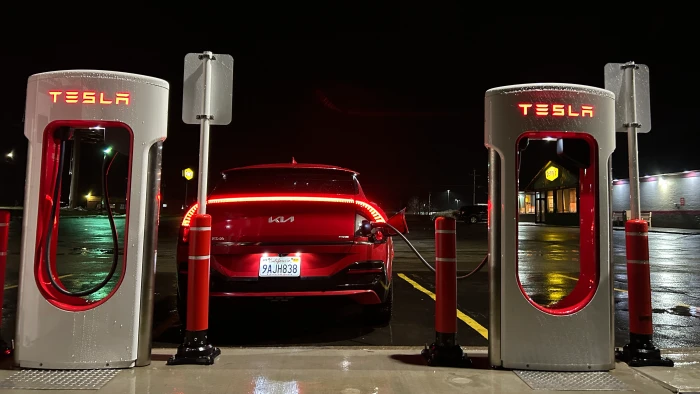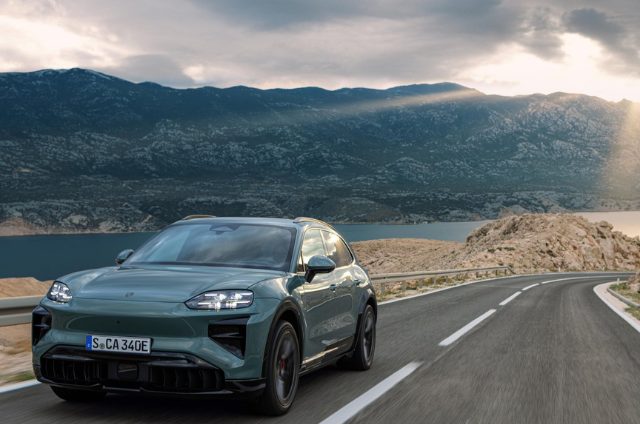The Loophole That Let Kia EVs Charge
Earlier this month, Kia EV owners discovered a surprising workaround: by identifying their vehicles as Hyundai models in the Tesla app, they could charge at Superchargers. This trick worked because Kia and Hyundai EVs share the same E-GMP platform, making them nearly indistinguishable to Tesla’s system.
However, this loophole didn’t last long. Tesla recently closed it, leaving Kia drivers unable to charge at Superchargers until official compatibility is rolled out. Attempting the hack now results in an error: “Your vehicle is not able to charge at Superchargers at this time.”
Kia’s Delayed Supercharger Access
Kia initially announced that its EV6 would gain Supercharger access starting January 15, 2025, but the rollout has been delayed until late Q1. Kia EVs, including the 2025 EV6 with a native NACS port, must wait for official support.
Kia confirmed that using third-party adapters, often relied on in these workarounds, could void warranty coverage. The automaker plans to release its own authorized adapter by the end of the quarter to ensure safer charging.
Why Tesla Shut the Door
Tesla’s move to close the loophole protects its network from risks associated with third-party adapters, which can potentially harm vehicle batteries. Tesla appears focused on maintaining proper agreements with automakers before granting access to its Superchargers.
This isn’t the first hiccup in Tesla’s integration of non-Tesla vehicles. Last year, Nissan drivers faced similar delays before gaining full access.
The Bigger Picture
The situation underscores the challenges of expanding charging networks to multiple brands. Tesla’s Superchargers are a major selling point, but the transition to NACS has brought growing pains for automakers and drivers.
Kia EV6 owners can look forward to faster charging speeds than Tesla vehicles once access is granted. For now, the wait highlights the complexities of building a unified charging system in a rapidly evolving industry.
Online Reactions
EV enthusiasts had mixed feelings online. Some said Tesla was right to secure its network, while others criticized the exclusivity. One user noted, “If gas stations worked like this, there’d be outrage!” Others argued for open access, pointing out that many international Superchargers already support all EVs.
This debate reflects Tesla’s balancing act: maintaining profitability and exclusivity while addressing growing demand for universal EV access.



